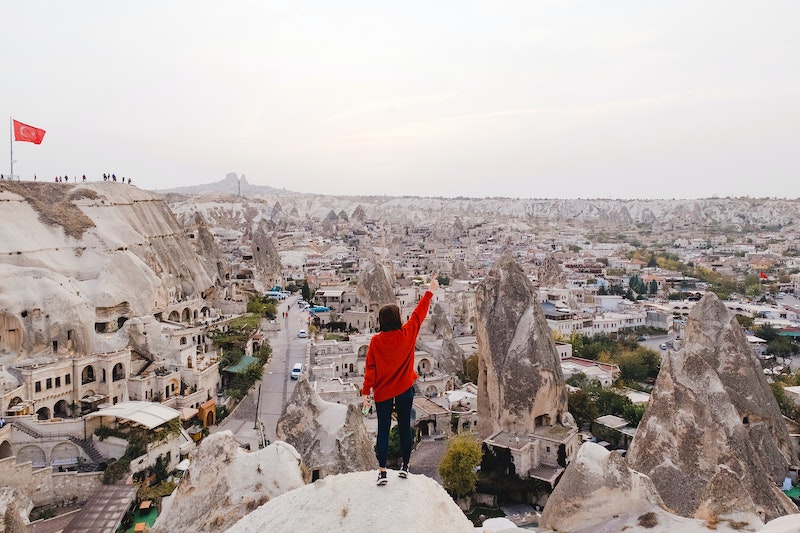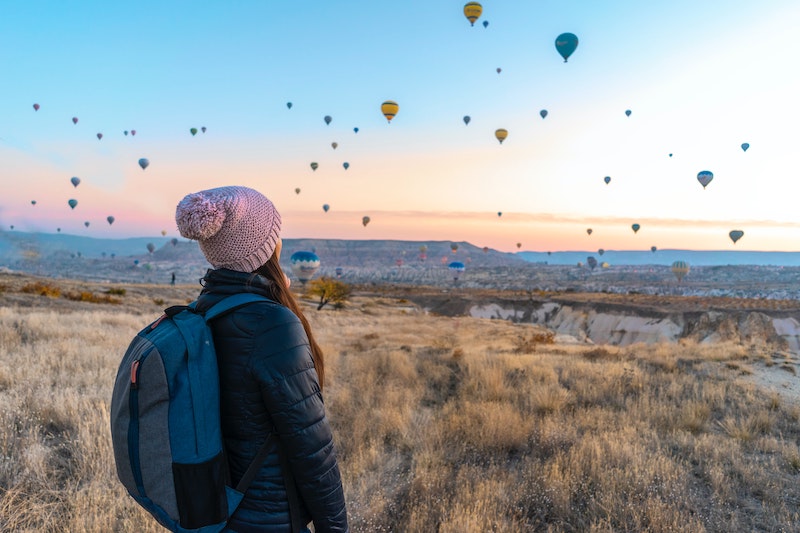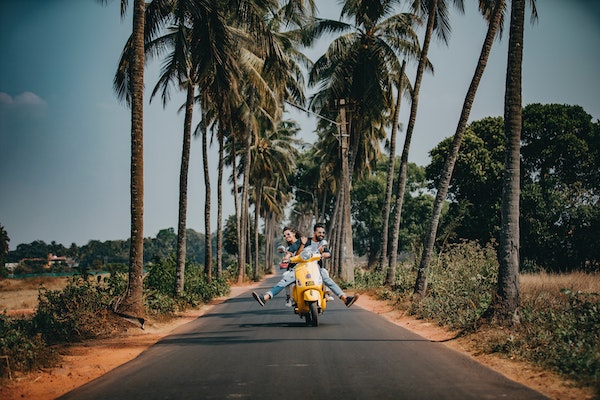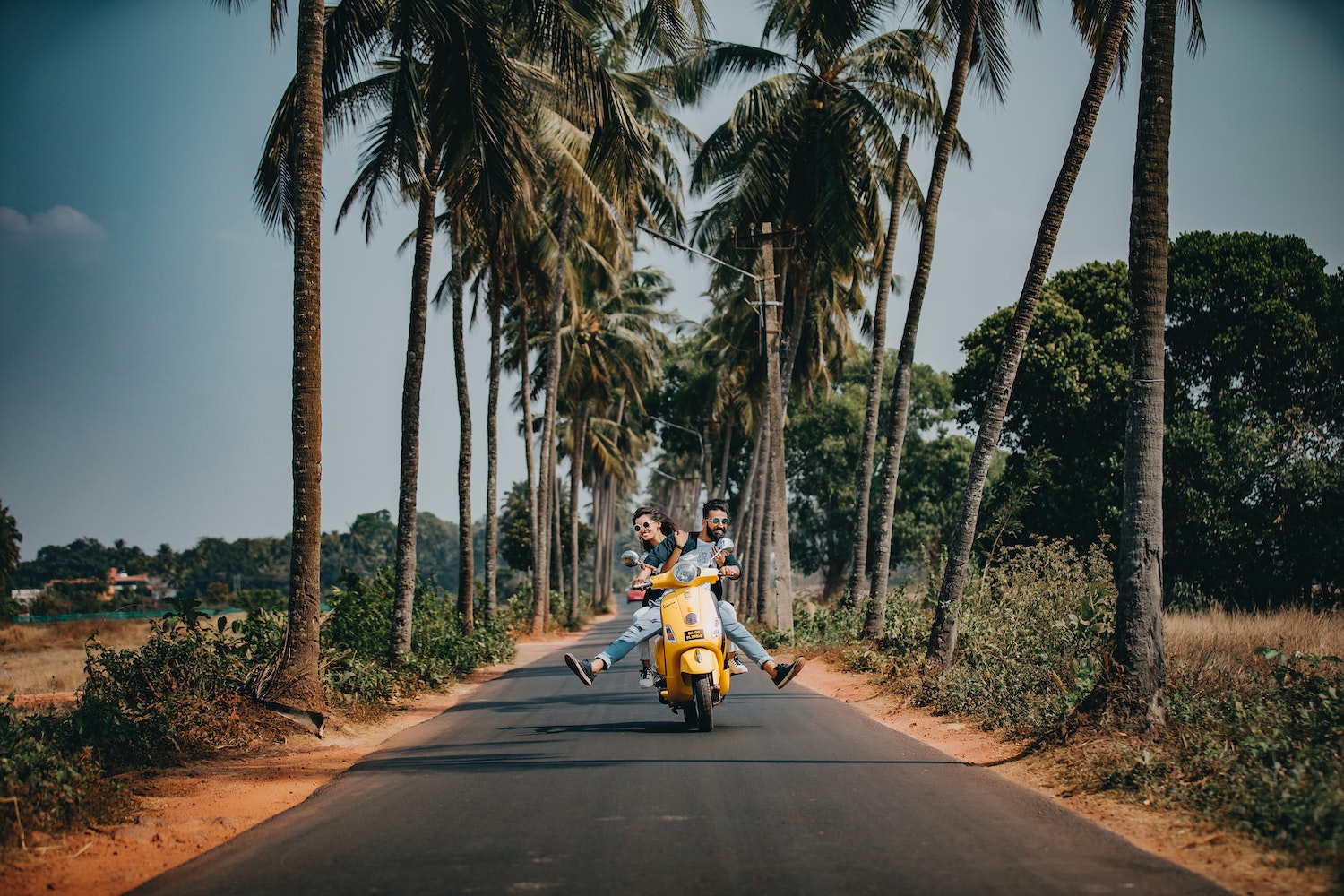Can Travel Make You More Creative?
To Boost Your Creativity, go Traveling
By Esme Benjamin
If you’ve ever been inspired by an international trip, you’re in good company. Many of the world’s most famous writers and artists, from Ernest Hemingway to Paul Gauguin, credit stints abroad with influencing their most celebrated masterpieces, suggesting exposure to new places really can broaden the mind. But if you’re hoping to get unstuck and cultivate new ideas, studies suggest you should be strategic with your travel plans, because when it comes to boosting creative cognition, some international experiences are more impactful than others.
Although inspiration can strike instantaneously, it’s often steady exposure to new information that creates a lightbulb moment. Perhaps unsurprisingly, then, science suggests that longer stints of travel have the most significant influence on creativity.

Inspired by his own experiences of residing in Japan, William W. Maddux, Professor of Organizational Behavior at The University of North Carolina at Chapel Hill, conducted a series of experiments to deduce whether living abroad boosts creative output throughout a lifetime. In one study, Maddux and his co-authors ranked the fashion lines of 270 of the world’s most prestigious brands. They discovered that those helmed by creative directors who had lived abroad – and especially those who had lived in more than one country – put out collections that were more innovative and creatively impactful than their peers who remained close to home.
“In terms of affecting long-term creative benefits, we find that more immersive experiences where you have to adapt, adjust your behavior, and really think differently, have the greatest impact,” explains Maddux. “There are not necessarily the same opportunities and incentives to do that when you're traveling, as opposed to when you're living or working abroad.”
But what if becoming a digital nomad or expat isn’t an option? Could a brief jaunt still produce some kind of creative boost? Maddux believes it’s possible, depending on how you choose to spend your time: “It's not to say that it can't happen, in fact, it often does. But it really depends on the experience and the more immersive it is, the better.”

For Momtaz Begum-Hossain, the London-based journalist behind the blog Travel and Craft, vacations are an opportunity to learn about local craft traditions. She frequently takes workshops in things like batik (wax-resistant dying) in Thailand or weaving in Swaziland to immerse herself in the culture and get to know local artisans.
“The creative connection of crafts allows you into someone's culture and their life in a way that just purchasing something from a little shop might not,” Begum-Hossain explains. “When you interact with people on your travels, you don't necessarily get to know much about them. But when you do a workshop with somebody, or you observe them at work, you get loads of ideas, you get excited, and then they get excited as well. Because that sharing of skills is a really human thing.”
Sometimes Begum-Hossain’s travel experiences directly inspire her creative work, like the embroidery piece she’s currently working on after taking a workshop in Mexico. Other times, they have changed her mindset, leading to creative problem-solving back home in England.
On one trip to India, for instance, Begum-Hossain watched a group of rickshaw drivers padding the vehicle’s seats with coconut husks. “It really blew my mind because this was a use of recycled materials in the most amazing way,” she explains. “In the Western world, in particular, we just throw things out. That’s something I took away from that trip and I've become so conscious of making things with what I've got.”

Spending quality time with local people, as Begum-Hossain does, is fundamental to what social scientists call integrative complexity (also known as cognitive flexibility) – the ability to see problems and situations from multiple vantage points. One example Maddux provides is of leaving food on your dinner plate: “It could be a compliment if you're in a culture where that is a signal to the host that you got enough to eat. Or it could be an insult if you're in a culture where you clean your plate [if you enjoyed the meal].”
As we observe cultural differences with curiosity and open-mindedness, we can begin to question our ingrained assumptions. This, in turn, increases our potential to produce novel or out-of-the-box ideas. “If you’re constantly thinking in a more complex way, that's going to stimulate the creative process,” explains Maddux, whose research has uncovered a link between close intercultural relationships and creative thinking. His team found that MBA students who had been romantically involved with someone from a different culture displayed more convergent and divergent thinking (two metrics associated with creativity), and were more likely to launch an entrepreneurial venture.
But you don’t have to have lived abroad or be closely connected to someone from another culture to have been creatively stimulated by travel. Novel experiences forge new neural pathways in our brains, nudging us out of habitual ways of thinking and towards fresh revelations. So, try that unusual (to you) dish, speak to the locals in their own language, and take an aimless wander through a non-touristy neighborhood – it might not transform you into the next great American author but you’ll likely come home feeling inspired in some small but significant ways.


